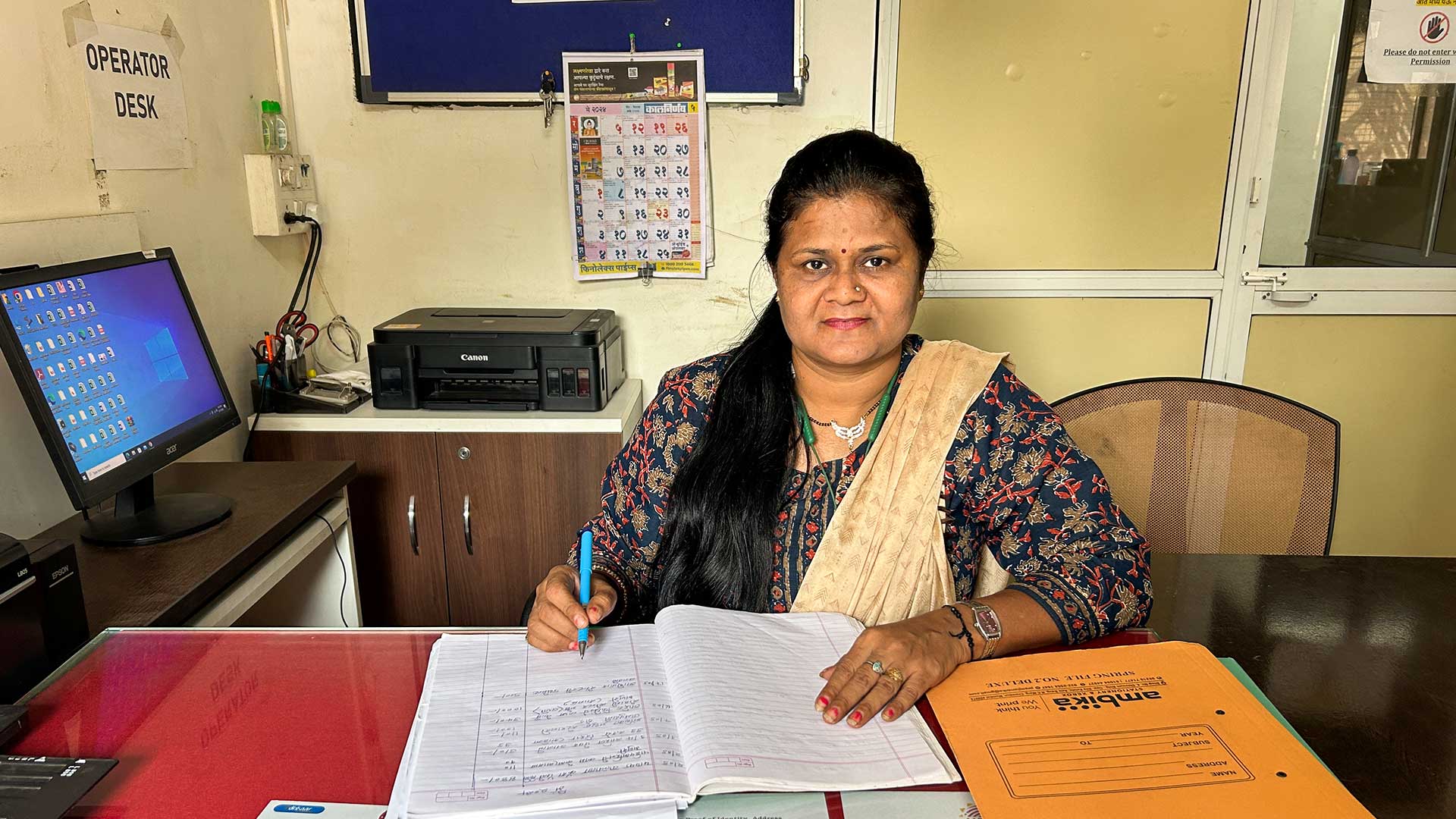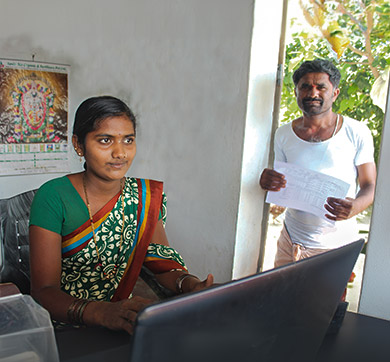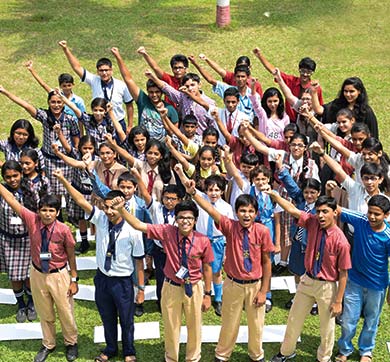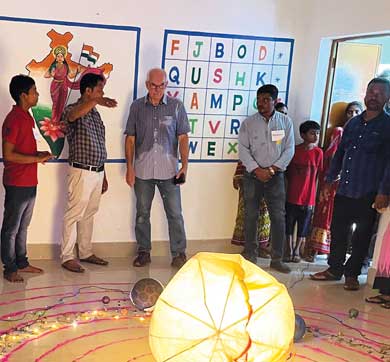October 2024 | 917 words | 3-minute read
It is 10 am. Five Adhikaar Mitras, including 42-year-old Archana Kute, have assembled in a small office in a slum cluster in M Ward in eastern Mumbai. Home to 13 lakh+ people, M Ward, consisting of Govandi, Mahul, and parts of Chembur, is considered Mumbai’s most underprivileged ward. It is also home to Ms Kute, who is part of Tata Power Community Development Trust’s (TPCDT) Adhikaar programme that trains people to act as local champions, bridging the gap to access government welfare schemes.
After the meeting to discuss the tasks for the day, Ms Kute leaves to check on Anjali Prajapati, a local resident. “Anjali approached me because she was unable to obtain a ration card as she lives on rent and didn’t have any proof of residence,” says Ms Kute. “Touts were quoting ₹20,000 for the ration card! So, I explained the situation to her landlord and got an NOC from him. We put the application together and she obtained a ration card. It cost her just ₹22.”
Ms Prajapati is among the thousands of people who have benefitted from Ms Kute’s help. “The people here are uneducated and very poor,” says Ms Kute, who resides in the Vashi Naka area of the ward. “They are waste pickers, manual labourers, domestic workers, etc. I help them obtain essential government documents, such as PAN card, Aadhaar card, income certificate, etc, and gain access to various government food security, social security, and other welfare schemes. In the first four months of 2024, Adhikaar Mitras in this area serviced 30,000 families; helping people undergo knee and eye surgeries, and even cancer treatment.”
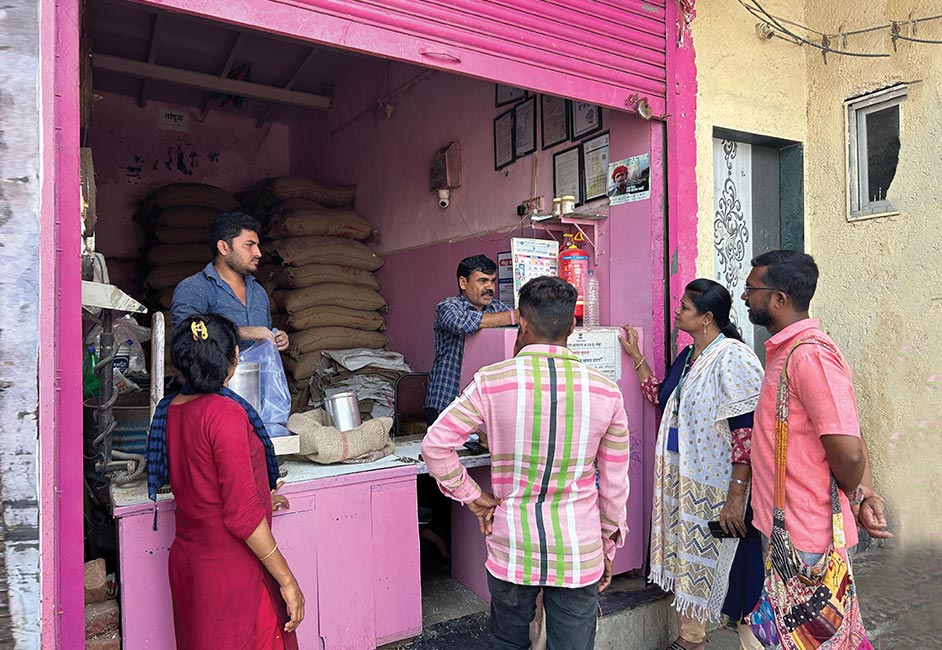
Champion of the underserved
Raising issues on behalf of the vulnerable is all in a day’s work for Ms Kute, who has mounted a fierce crusade against corruption in the Public Distribution System (PDS). “Families availing of PDS benefits are entitled to 3kg of rice and 2kg of wheat per head per month at a subsidised rate and an equal amount free,” says Ms Kute. “Most people don’t know this. So, ration shop owners give them far less and sell the rest at a profit.”
The pan-India Adhikaar programme, designed by TPCDT in association with Social Alpha, has empowered 920 Adhikaar Mitras to help 5 lakh people across 26 districts in 10 states, unlocking Rs 400 crore worth of value through government schemes.
To combat this, Ms Kute files complaints, confronts shop owners and meets government ration officers seeking redressal. She teaches people how to use the Mera Ration app to learn what they are entitled to. All this has earned her the moniker Ration Bai. “We often get threats, abuses and offers of hafta [bribes],” she says. “But we ignore them.”
From fear to hope
Ms Kute’s first brush with the social sector was when she joined the neighbourhood self-help group (SHG). She had moved to Mumbai from Walavne village in Maharashtra’s Ahmednagar district after getting married as a young girl. “I didn’t understand Hindi and everything in the city was unfamiliar, and intimidating,” says Ms Kute, who rarely ventured out of her home. “My husband also abused me.” Slowly, the SHG helped her navigate slum life and gave her a purpose. In 2017, the SHG joined hands with TPCDT, and Ms Kute, who was then 35, was trained to work as an Adhikaar Mitra. “But I was unable to bear the abuse at home and I ran away for a short time. I was so broken from inside. I didn’t think I would ever be able to stand on my own feet. Through it all, TPCDT leaders supported me and gave me the resources to take care of my children and give them a better life,” she says. “Today, my daughter is studying for a Master of Social Work and my son is in the Indian Army.”
Making a difference
In her seven years as an Adhikaar Mitra, Ms Kute has helped:
- Ensure food security for 15,000+ families
- 7,000 families enrol in the Ayushman Bharat scheme
- 6,000 people obtain an eShram card
- 600 families enrol in the PM Jan-Dhan Yojana
- 1,000 families enrol in the Sukanya Samriddhi Yojana
Uphill task
One of Ms Kute’s greatest achievements was when she took up cudgels on behalf of a destitute Adivasi community. “About 25 families from the Katkari tribe live on a hill,” she says. “They have lived there for generations, in bamboo homes with no water or electricity connections. They survive by scavenging in garbage dumps or on charity. Initially, they were suspicious of me, as no one had ever cared to talk to them.” Undeterred, she trekked uphill twice a week to bond with them.
“Getting them Aadhar cards proved problematic as they had no documents at all,” she says. “So, I asked the local corporator for help. Armed with a letter from him, we went to the ration office and got them Aadhaar cards. Later, we got pink [temporary] ration cards for them.”
Engaging with government officials and stakeholders from the community is an integral part of Ms Kute’s job. From spending her youth afraid to interact with the world outside to standing up to abusive shop owners and having her complaints reach Mantralaya, Ms Kute has come a long way.
—Cynthia Rodrigues




